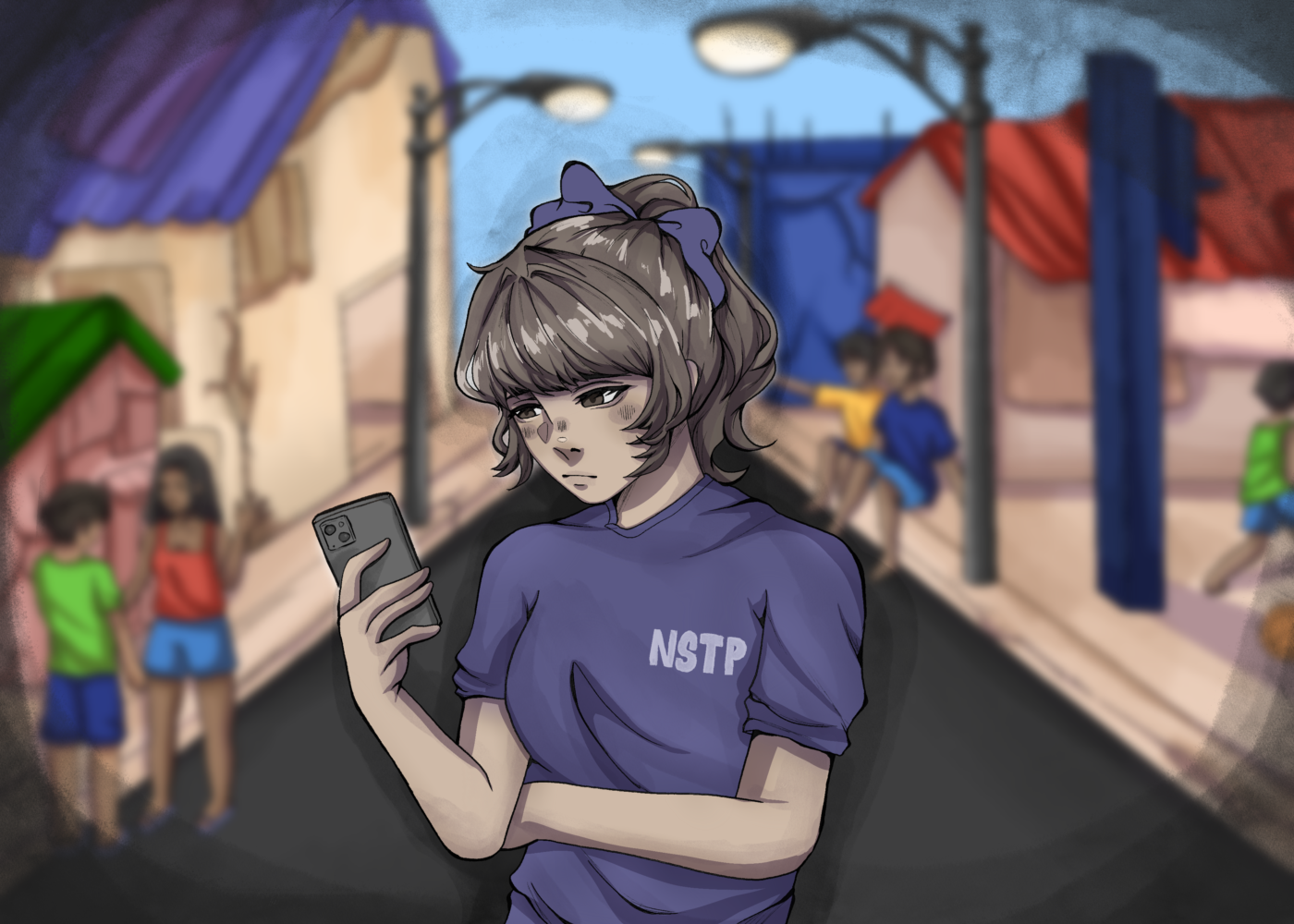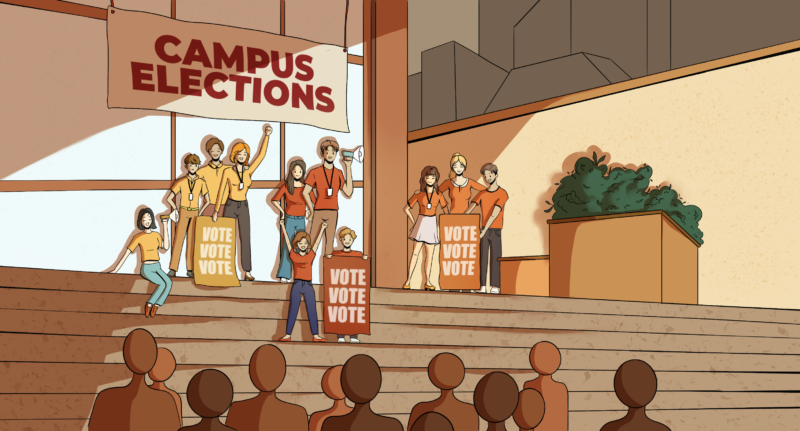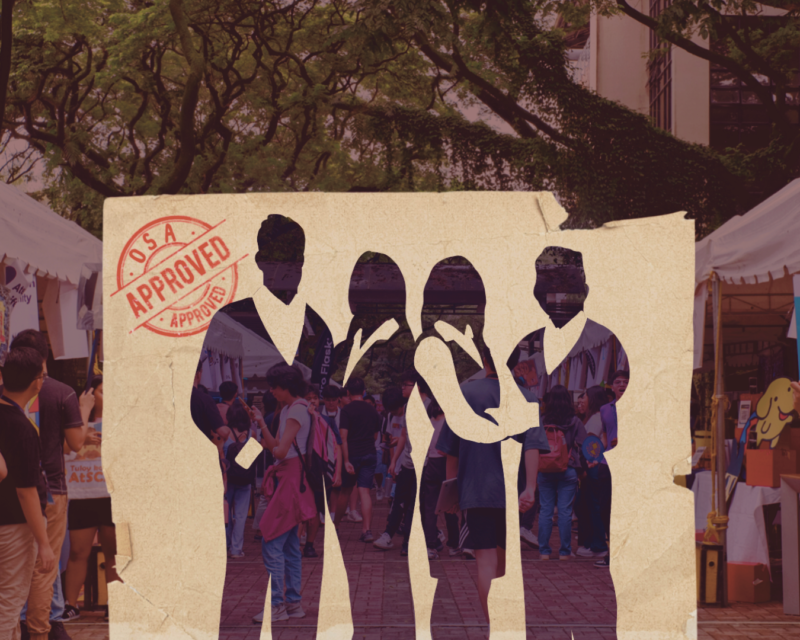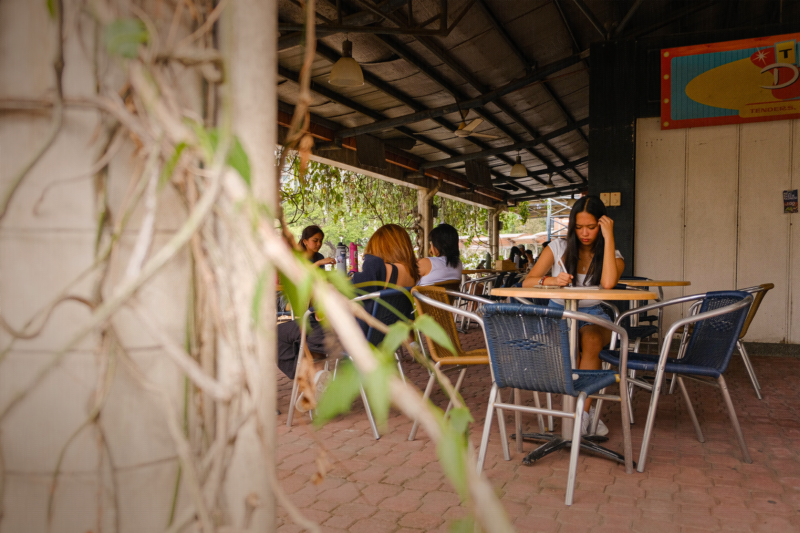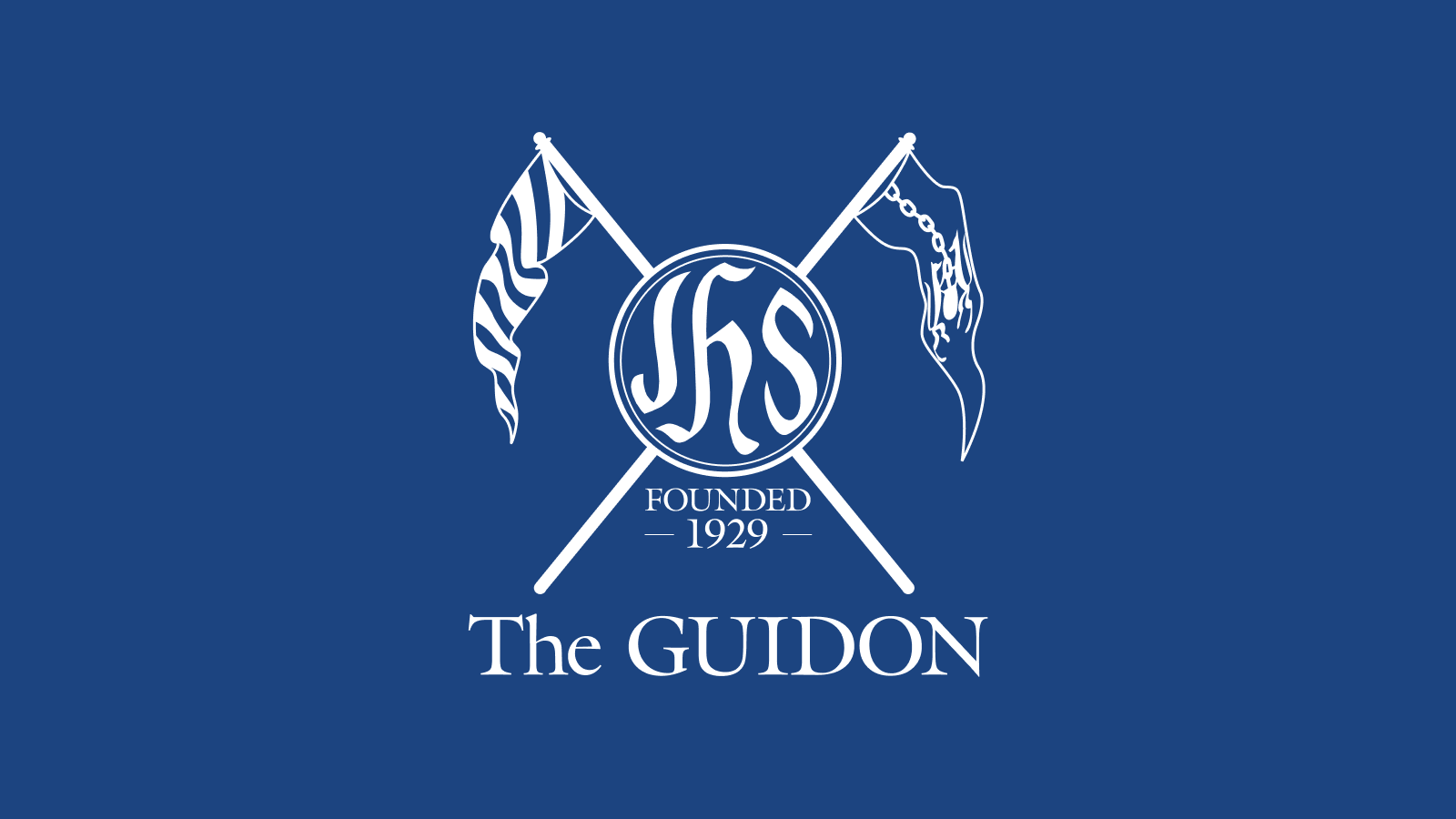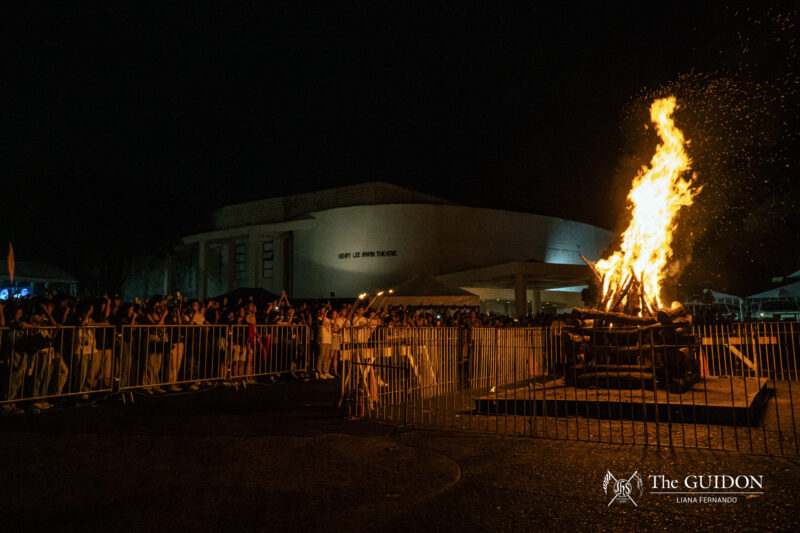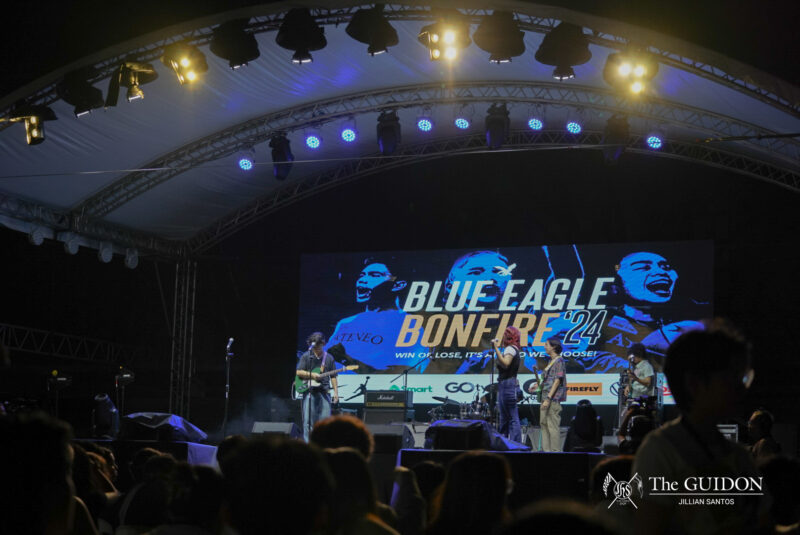FOR ATENEANS to apply classroom concepts to everyday realities, the Office of Social Concern and Involvement (OSCI) spearheads the University’s formation activities under its Binhi, Punla, and Bigkis programs. An objective of these initiatives is to facilitate “meaningful encounters” between the students and the partner communities.
This year’s full resumption of off-campus area engagements hopes to reinforce this goal, which has been affected due to the remote limitations of online learning. However, despite the opportunity to create a more profound affinity with partner areas, there persists a lingering concern on whether or not genuine connections are built.
Back onsite
As kwentuhan sessions this year have completely vacated the detached setup of virtual platforms, OSCI Director Ophalle Alzona-Pornela welcomes the apparent change in students’ interaction with the partner communities. Alongside this recent development is the alignment of the Binhi, Punla, and Bigkis programs to the University’s new curriculum.
Alzona-Pornela explains that linking these programs to a core subject aims to form their sense of awareness, empathy, and responsible action. The programs’ interconnectedness becomes more evident in Bigkis, when students attempt to use the knowledge and skills in their fields of study to provide solutions to the issues of their assigned community.
To determine these area partners, OSCI employs a careful process, which is essentially included in the crafting of its formation programs. Alzona-Pornela says that organizations are chosen primarily based on their compatibility with the University’s academic programs.
Some of the factors considered in the evaluation are how these advocate groups share the same beliefs and values as the Ateneo, as well as the students’ post-evaluations from the previous years. Most notably, OSCI also looks into the safety and security of the engagement’s location.
Moreover, instead of solely utilizing online applications such as Canvas, formators also now make use of classroom activities in conducting assessments and asking feedback. Alzona-Pornela emphasizes that OSCI considers the importance of students’ ideas and experiences in evaluating the formation programs’ impact.
The “processing sessions” after the engagements also become an avenue for grounding Ateneans’ gained perspectives in the country’s current socio-economic contexts.
With the ever-changing societal realities, OSCI actively updates itself with the current trends and issues faced by partner communities to highlight their contemporary challenges. According to Alzona-Pornela, this measure is done to ensure that the programs contribute to the ultimate goal of holistically forming Ateneans with constant reference to notable developments in the modern times.
As students partake in these endeavors beyond the classroom, Alzona-Pornela hopes for them to gain experiences that allow them to see the practical essence of their academic knowledge.
Grounded realities
After finishing OSCI’s three formation programs, Sophia Michaela Barbas (4 BS CH) appreciates the well-roundedness of these initiatives. As a science major, she stresses how these activities allow her to see the real-world significance of her degree beyond mere “solving chemical equations” in the classroom.
Barbas expounds on her experiences in the Bigkis program, where she worked with Buklod Tao—a non-profit environmental organization based in San Mateo, Rizal. Along with other Chemistry students, she tested the water, soil, and air quality in the community. They also evaluated the potability of rainwater in the area.
Taking part in these community service activities, Barbas realized the importance of viewing these initiatives as a way of further understanding the country’s socio-economic situations. Aside from forming a sense of awareness, she believes that a genuine understanding of the partner community’s predicaments necessitates a meaningful connection with them.
Resonating with this sentiment is Jesther Resuello (2 BS PSY), who interacted with a land caretaker from Kapuncan, Luzon during his online Binhi engagement. By learning about their engagement speaker’s struggles in keeping a steady income, Resuello says that he and his classmates became more aware of how they can contribute to help those in need.
“Hindi sapat ‘yung natututunan natin sa apat na sulok ng isang silid-aralan. Kailangan nating lumabas, kaya sobrang helpful ng mga outside engagement na ‘to, because […] hindi lahat ng estudyante sa Ateneo may alam sa communities na gan’on,” Resuello remarks.
(What we learn inside a classroom’s four walls is not enough. We need to go out to see how helpful these outside engagements are because not all students in the Ateneo are aware of what these communities go through.)
Picking up from this insight, Resuello looks forward to participating in off-campus formation activities. He hopes for more sincere connections and realizations when he takes the Punla program later this academic year.
However, amid the current onsite opportunities for interaction is the students’ seeming disconnect with the partner communities after the engagement sessions. With the formation program’s semestral implementation, Barbas shares that Ateneans are likely to forget about these organizations in the future.
While students are required in Bigkis to propose solutions to their assigned community’s problems, Barbas admits that she is left unaware if these action plans are truly implemented.
She notes that these observations highlight the need for the programs to further nurture the students’ built relationships with the communities even after accomplishing the required tasks. She suggests inviting these partners in school activities that are in relation to their respective advocacies.
“These communities really want a long-standing relationship with Ateneo because they want to keep moving forward and let people understand their advocacy and what they fight for,” Barbas points out.
Areas to improve
As the University continually improves its programs for holistic formation, integral measures need to be done to ensure that relationships do not simply become transactional for both the students and the partner communities.
Alzona-Pornela shares that the transition to onsite activities this year has gained positive response from the students’ experiences. “I’ve heard feedback from the students [that] they’re able to get to know more about their partner communities that they’ve visited. They’re [now] able to form friendships,” she notes.
She adds that OSCI is currently exploring the possibility of letting every student focus on a single community from Binhi to Bigkis. According to her, this concept will prompt Ateneans to better foster their formed relationships, formulate more directed solutions, and further aid their chosen communities.In the spirit of cura personalis, both Reseullo and Barbas emphasize that through these formation programs, their desire to care for individuals’ entire person greatly extends to those beyond the Ateneo. While recognizing the important role of partner communities, they express that these endeavors contribute to Ateneans’ better understanding of the everyday problems faced by the country’s marginalized communities.

